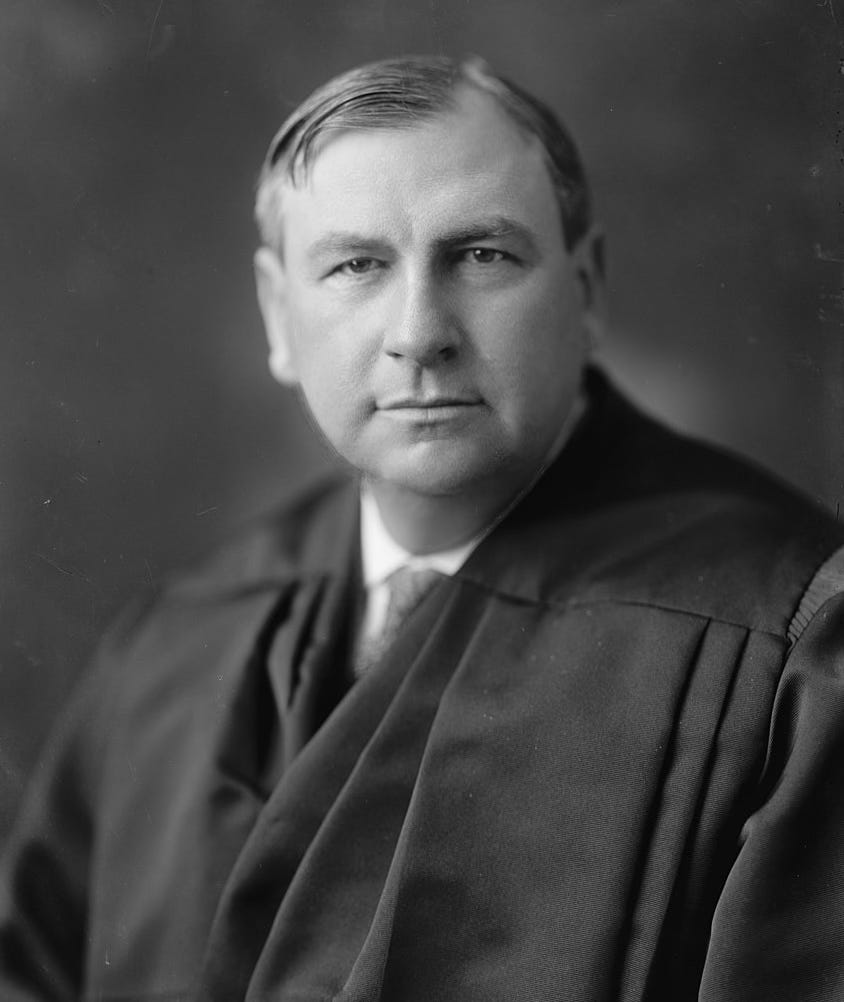Jan 28 2025 5 mins 2
This Day in Legal History: Harlan F. Stone Appears Before Senate Judiciary Committee
On January 28, 1925, Harlan Fiske Stone became the first U.S. Supreme Court nominee to testify before the Senate Judiciary Committee. This marked a significant turning point in the judicial confirmation process, as prior nominees were not required to appear in person. Stone, a former Attorney General and respected legal scholar, was nominated by President Calvin Coolidge to fill a vacancy on the Supreme Court. The decision to have him testify was unprecedented and came in response to concerns raised about his political independence and potential ties to Wall Street interests.
During his appearance, Stone assured the committee of his commitment to judicial impartiality and independence. He addressed questions about his legal philosophy, his past work, and the role of the judiciary in upholding the Constitution. His calm demeanor and straightforward responses helped to dispel doubts and earned him bipartisan support. The hearing was also held publicly, setting a new standard of transparency in the confirmation process.
Stone’s testimony contributed to his swift confirmation as an Associate Justice by the Senate, where he served with distinction. Later, in 1941, he became the Chief Justice of the United States, further cementing his legacy as one of the nation’s most respected jurists. This event set a precedent that has since become a critical part of the Supreme Court nomination process, allowing the Senate and the public to scrutinize nominees more thoroughly.
The decision to include nominee testimony is seen as a key development in ensuring accountability and public trust in the judiciary. Stone’s appearance before the committee reflected a shift toward greater transparency in government, a principle that continues to shape the confirmation process today.
A transgender inmate, identified as "Maria Moe," has filed a lawsuit challenging President Donald Trump’s executive order mandating federal recognition of only two unchangeable biological sexes. The order requires transgender women to be housed in men’s prisons and ends funding for gender-affirming medical care for incarcerated individuals. The lawsuit, filed in Boston federal court, argues that the order violates the Fifth Amendment's due process clause by discriminating based on sex and the Eighth Amendment’s prohibition of cruel and unusual punishment. It also alleges a violation of the Rehabilitation Act of 1973 by denying medically necessary care.
Following the executive order, Moe was informed of her impending transfer from a women’s prison to a men’s facility, and her official prison records were altered to reflect a male designation. The lawsuit claims that such a transfer would expose Moe to heightened risks of violence and sexual assault. Additionally, Moe’s access to hormone therapy, which she has used since adolescence to treat gender dysphoria, is at risk of being discontinued. Moe’s legal team is seeking to block her transfer, maintain her medical treatment, and have the executive order declared unconstitutional. Both the U.S. Justice Department and Moe’s attorney declined to comment.
Transgender inmate sues over Trump's order curtailing LGBT rights | Reuters
Novo Nordisk has agreed to cap insulin prices as part of a settlement with Minnesota’s attorney general, who accused the company and two other major insulin manufacturers, Eli Lilly and Sanofi, of inflating insulin prices to unaffordable levels. Under the settlement, Novo Nordisk will limit out-of-pocket insulin costs to $35 per monthly prescription for cash-paying patients, regardless of insurance status, and will provide free insulin to low-income Minnesotans earning up to 400% of the federal poverty level (about $128,600 for a family of four).
This agreement mirrors earlier settlements Minnesota reached with Eli Lilly and Sanofi in 2024. Together, the settlements are expected to cut insulin costs for patients by over 90%. While Novo Nordisk denied any wrongdoing, the settlement will remain in effect for five years pending court approval. Minnesota’s attorney general, Keith Ellison, criticized insulin makers for prioritizing profits over patients' lives, accusing them of artificially inflating list prices while negotiating rebates with pharmacy benefit managers. Insulin is a life-saving drug for individuals with diabetes, particularly type 1. Minnesota’s legal battle began in 2018 under Ellison’s predecessor, Lori Swanson.
Novo Nordisk to cap insulin prices in Minnesota settlement; joins Lilly, Sanofi | Reuters
President Donald Trump’s recent federal hiring freeze has disrupted career plans for thousands of law students seeking government jobs or internships. Federal agencies, including the Department of Justice (DOJ), the IRS, and the Environmental Protection Agency, have revoked permanent job offers to third-year law students accepted into prestigious honors programs. Additionally, hundreds of summer internships, both paid and volunteer, have been canceled, impacting over 2,000 positions in total.
The DOJ, the largest legal employer among federal agencies, has rescinded job offers and canceled its summer programs, which typically place around 1,800 students annually. The hiring freeze has also led agencies to withdraw from law school recruiting events and remove job postings. Career services officials warn that these cancellations harm both federal agencies, which lose a critical pipeline of future talent, and students, who miss out on essential work experience often leading to full-time positions or judicial clerkships. Judicial clerkships, funded separately, are unaffected by the freeze.
Law schools nationwide report significant disruptions, with many students left scrambling for alternative opportunities. Legal professionals and career advisors express concern over the long-term impact on government hiring and students’ career trajectories. The White House has not commented on the issue.
Trump's hiring freeze leaves thousands of law students out in the cold | Reuters
This is a public episode. If you’d like to discuss this with other subscribers or get access to bonus episodes, visit www.minimumcomp.com/subscribe
